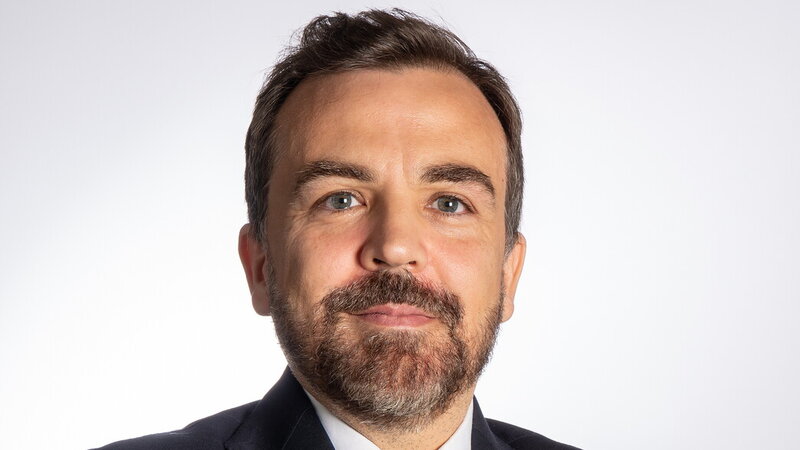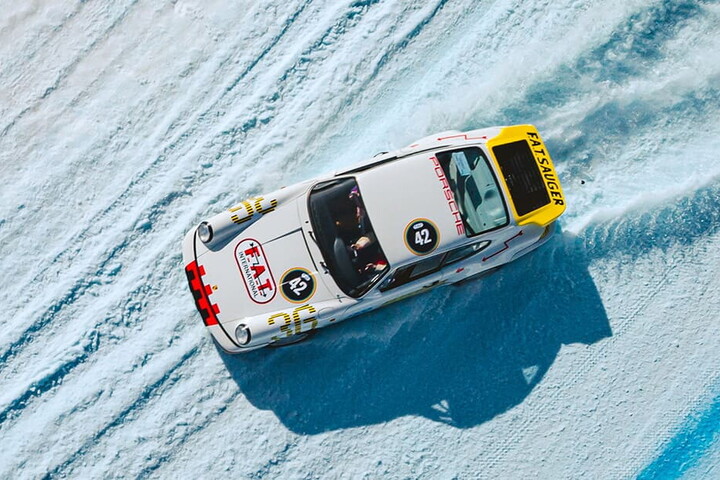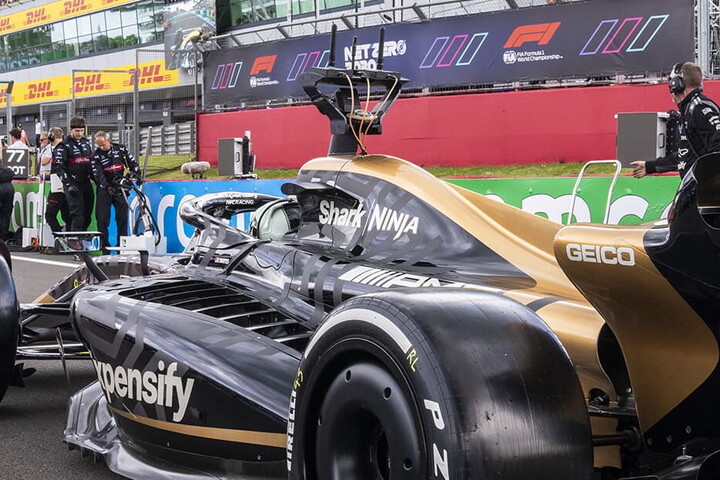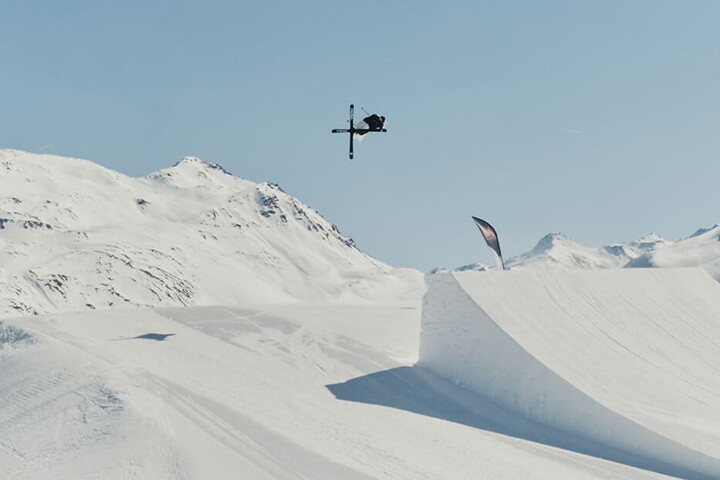In a company such as Pirelli, manufacturing never stands still. Driven forward by constant innovation, new technology is blazing a trail of increased digitalization, automation and electrification. Taken together with upskilling, reskilling and new recruitment, this places Pirelli at the forefront of the automotive world. Marco Guerrieri, Senior Vice President Manufacturing, explains the appeal of being at the cutting-edge of an unprecedented technology transformation.
What are your key priorities in Manufacturing?
The manufacturing industry is undergoing significant transformation right now. Sustainability, cost optimization and customer service are the new priorities, complementing the traditional ones of efficiency, quality and productivity. Digitalization, automation and electrification are the key drivers, all the while keeping our people at the core of our operations.
We're eight years on from the start of Pirelli's digital transformation process. How are things different today?
That's an interesting question because digital technology pulled the trigger for the “Fourth Industrial Revolution”, enhancing automation and the potential of robotics. Pirelli embraced this transformation from the start and today we are reaping the benefits of using gantry robots, automated conveyors and autonomous mobile robots. So we're in a position to redesign a completely integrated assembly line to optimise the flow of materials, fulfil process quality, cut production costs, remove bottlenecks, improve space utilisation and reduce human error. It's what we call a “Future Factory”. This is becoming a reality in our European plants, in particular in Italy, where we already have automated system vision technology in place, which can help us achieve new legal and OEM requirements and meet market demands. Digitalization also plays a key role in energy efficiency management, because by accessing the consumption data we are able to consistently reduce energy usage, CO2 emissions and waste generation.

How has everyday work changed for people and what's been the impact of upskilling and reskilling?
Technology is transforming the nature of work and the workplace itself. People at all levels have to be upskilled and reskilled because otherwise technology is going faster than people can adapt. Our HR and digital departments are supporting the transition through dedicated training, in co-operation with universities, to reinforce digital competence and are also establishing a dedicated function of manufacturing intelligence. This can develop digital use cases in co-operation with our Digital Solutions Centre in Bari in southern Italy, drawing on new young talent. It's very important that we start to talk the digital language in our function and the secret is to combine traditional experience with the younger generation of digital natives.
The Industrial Plan Update 2024–25 talks about finding €370 million in efficiencies between 2023–25, largely through digitalization and automation. Are these on course?
The size of the cost improvements is a consequence of the unprecedented transformation we are experiencing. We are taking all the opportunities created by digitalization, automation and electrification, and I'm glad to say that we are achieving the 2024–25 targets. This is even more remarkable given all the challenging world events that have been happening around us.
What are the challenges for Manufacturing of delivering new products and meeting new demands – such as Pirelli ELECT tyres for electric vehicles and the CyberTM Tyre system?
Customer expectations are changing very fast and we are facing a competitive new market scenario. Today, performance for the customer also means sustainability and connectivity. Our research and development (R&D) department is developing products specifically dedicated to the electric vehicle and is setting a standard for battery range, acoustic comfort and durability. The challenge from the manufacturing point of view is to follow the product development and guarantee the highest level of traceability, capability, repeatability and quality. We need to plan our production to deliver at the right time for the customer and crucial to this is the Internet of Things, otherwise we will not have full traceability from raw materials to the final product.
What steps are you taking to drive sustainability further in Manufacturing?
We've had a lot of focus and initiative on energy efficiency, but I would like to highlight that we are very proud to be among the leaders in our industry for the electrification of our curing process. We are completely phasing out steam as a source of energy for curing, switching to electricity from renewable sources. This reduces energy consumption in kilowatt hours per piece by 80 per cent and the CO2 emissions of our plant by 40 per cent. It is a crucial step to support our 2030 target of carbon neutrality and we have a clear roll-out plan that will convert all our factories, starting in Europe.
Can you describe how you interact with other departments to achieve Pirelli's objective of increasing the bio-based and recycled component of its tyres?
We need to work strictly in parallel with each other. With R&D, for example, we need to have the same pattern, working at the same speed, when we design and develop new products, or it just won't work. The same is true for the supply chain; clearly we need to work together with them to understand how they are treating raw materials, such as Forest Stewardship Council-certified natural rubber. At the same time, we need to understand their needs in order to handle the complexity and deliver a high variety of products.
How many people do you have in Manufacturing and what qualities are you looking for when you hire them?
Manufacturing involves approximately 21,000 people split across 18 industrial plants in Europe, North America, Asia Pacific and South America, so most of the planet. We're always looking for people with a passion for automation, people with a digital DNA. All of our people are proud to be in Pirelli. They are results-oriented and, of course, have a very solid technical knowledge. They usually come from technical universities, with backgrounds in engineering. On average, people stay in Pirelli for around 18 years and we like to build their career from the beginning, so now we are looking for recently graduated engineers.
None of our work can be achieved without our great team, which is spread around the world and made up of men and women – and we are always looking for more women to balance what has been a male-oriented environment.
How are you able to achieve consistency in Manufacturing across multiple sites and continents?
It's a huge challenge. It's essential to have a common language, standards and methods and to share the same industrial culture. This is the aim of our Pirelli Manufacturing Excellence programme, which includes development and training activities. We also want to give factories the tools to develop their own cost-efficiency programmes within the Pirelli method. We travel regularly to all our operating units and have an annual global meeting where we meet in person and reinforce our relationships, because the human factor is very important.
Why work for Pirelli?
Dealing with cutting-edge technology has always been a part of our story at Pirelli and we are currently experiencing an unprecedented technology transformation. We have a lot of passion in our work. I think our efforts in the motorsport championships give a clear sign of that. As does our effort in sailing's America's Cup. And our Calendar. They all underline how we are proud to be in Pirelli and the many opportunities we have in this company.




